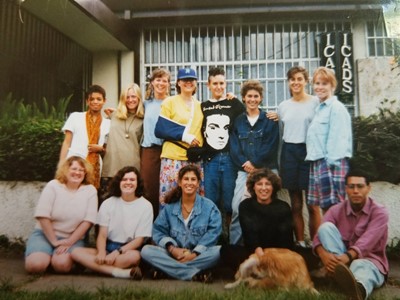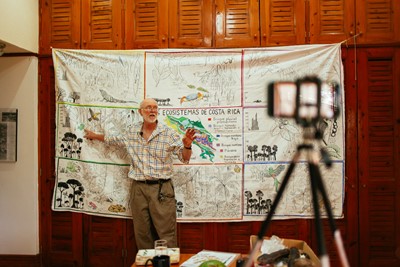Blog
Why don’t we celebrate Columbus Day?
December 23, 2019
October 12 °. It is not a date to celebrate, but to reflect.
The “Encounter of Cultures” is the official name that this celebration receives since it celebrates Christpher Columbus’s arrival to the “New World” and it was the moment in which European culture met the native cultures of this so-called New World.
This idea, which starts from an ideological interpretation in which this event was positive for humanity, must be analyzed within a more critical reading, which allows explaining the new colonialisms suffered by this Latin American region.
In 1492, Europeans came to take over not only the lands but also natural resources and “souls” of the people who inhabited the continent. It was a process of conquest and not a cultural encounter.
More than an encounter, it was a European invasion in which the Catholic church played a fundamental role, because with the process of evangelization and education carried out, there was a reduction of the indigenous population (genocide), and an imposition of customs with the consistent establishment of prohibitions for native languages, traditions and practices of native cultures’ worldview. This resulted in the collapse of the original cultures, affecting the territories, destroying the indigenous identity, and with it, the disarticulation of the social networks and the ancestral culture.
That is why it is considered, by those who oppose this celebration, that October 12 represents the beginning of a process of violent cultural, political and military imposition, which includes the extermination of millions of people in the name of civilization and of the catholic religion, as well as the stigmatization and most absolute historical discrimination of peoples and cultures.
This heritage explains in many ways the current situation in Latin America, since the European colonization of the Americas had as its premise the supposed racial and gender supremacy based on religion, which later degenerated into absolutist social, anthropological and philosophical theories that converted and reduced the other (the afro-descendant, the Indian, the mestizo, the woman) to silent and oppressed gear of the mechanisms of capitalist production that subsist until now.
So, the question is why keep “celebrating” an event that caused so much damage. Instead of celebrating, it is a day to reflect on how these colonial patterns reproduce in our society and what we should do to avoid being part of the reproduction of those patterns.

ICADS Partner Spotlight: Celebrating 30 years with Pitzer College
ICADS and Pitzer College celebrate and reflect on 30 years of working together in Study Abroad!
#COSTA RICA #ICADS ACADEMIC #NEWS #STUDY ABROAD

Alumni Newsletter
A few weeks ago, ICADS received an email from an alumnus from 1993, which was only a few years into the existence of the program. Hearing a little about this once student's experience and how ICADS changed the trajectory of their life rang familiar to us here, and we hope to celebrate that legacy and the mission that enables it.
#CULTURE #INTERNSHIP #STUDY ABROAD

A Year in Review: Change and Adaptation in 2020
As we approach one year since the COVID-19 pandemic began, we reflect on a year of change and adaptation, and we look forward to a new chapter in 2021!
#COSTA RICA #STUDY ABROAD #ICADS ACADEMIC #NEWS